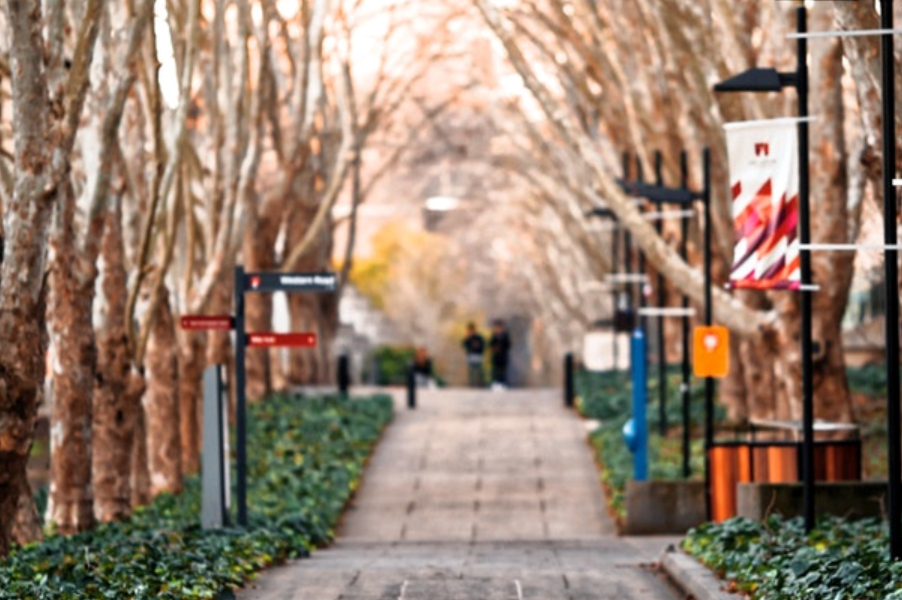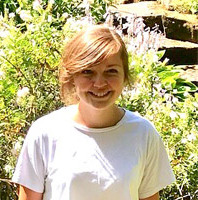Choosing your university
For many students, the choice of where to go on a year abroad is dictated by personal preference, an interest in a specific country, the course content of a specific university, the weather, the food, and for some, the quality of the university. However, for me, I knew regardless of how high up the league tables a university might be, if it did not have good disability support I would not be able to access, and therefore enjoy, the year.
My recommendation for this is to do your research properly. I contacted my home university’s study abroad and disability departments and asked about past good or bad experiences with American universities. I was told, and I quote, "They are all pretty much the same". This isn’t true in the UK, so I did not imagine it would be true of the US either. Most universities should have a website or page dedicated to their disability support service. If they don’t, this is a bad sign. When I was researching, some of these pages didn’t even list visual impairments among their list of disabilities they make adjustments for. I also took this as a bad sign and listed those universities as a no-go.

On the other hand, others had in-depth pages describing the adjustments the disability services provide. For me, the key things to look out for was the provision of accessible texts and course materials, note-takers and exam adjustments. Whatever adjustments you’re used to getting at your current university, make sure your host university says they offer them too.
Whilst solely using a university’s website to determine the quality of their services might seem harsh, it seemed like a good basis to start narrowing down the options. That said, if there is a university you love, and you can’t find the information you want, contact the disability services by email and ask your questions. If they don’t seem particularly on the ball, but you still love the university, you can still go for it, but just be prepared to spend more of your year fighting your corner. I knew, personally, that that was not how I wanted to be spending my year abroad. I knew I would find it too frustrating. I thought too, that I might get to the point where I couldn’t be bothered to fight for things anymore, and my involvement, interest and grades for the course would suffer.
Getting the support in place
When you are well and truly researched out (which will probably happen!) and you’ve chosen your favourite universities, submitted the application, and been given a place at (hopefully) your first choice, it’s time to start being organised! As soon as you have your place confirmed, get in touch with your host universities disability services. Explain who you are, the nature of your disability, and ask about their process for getting the support you need in place. The sooner you do this the better. Often, medical proof is required, much like for the application for Disabled Student Allowance. However, depending on the university, they may have their own forms they require your doctor to fill out, and a normal doctor’s letter is not enough. As we all know, doctors are busy and these things can take longer than you expect - so do it as soon as you can!

Essentially, be prepared to do a lot of hoop jumping. It may seem boring and tedious, but I promise you it will be worth doing this early! Do as much as you can possibly do from your home country, and this will give you less hassle to deal with when you arrive in a brand new city, or town, with more exciting things to do than fill out forms.
At some point in the year abroad process you’ll have to do your module selection. Once this is done, contact the lecturers that will be teaching you. The university may or may not provide them with information about your adjustments. In my case, they may do so three weeks into term. Emailing your teachers in advance about who you are, how you work, and what you need from them will just make sure you start the year well. It should also lessen the chances of you having to play catch-up later.
Another thing to consider is whether you’ll have access to any medication you need while you are abroad. I have multiple eye-drops to take a day, and was able to bring enough with me when I left the UK. This took a few trips to the doctors to get sorted, but it did get sorted and is not something you want to forget or leave to chance.
Upon arrival - what to expect
Most people go on a year abroad in their third year of university, or a semester of their second year. At these two points, you have already settled in at home, you likely have a good group of friends, you know your way around, and your points of contact etc. A year abroad is really about rebuilding all this in a whole new country and it is both daunting and exciting. For general tips about starting university with a disability, see my previous post:
Starting University With a Disability: 4 Key Things to Know
From speaking to other students who have been on a year abroad with a disability, one thing we have agreed on is that it is easy to stay quiet, and therefore feel isolated. It’s easy to feel like you’re the only person going through the things you are.
For my first few weeks in Boston I had severe headaches and eye pain by around 8pm. The mental and visual energy of learning a new place, new routes, and new people was exhausting. It is something that has eased the longer I have been here, but at first it was very annoying; I was in an exciting city, having moved across the Atlantic Ocean which is hands-down the best, and most exciting thing I have ever done. I felt like I should be out enjoying every second, when my head and eyes were telling me to get an early night. I felt that to express my frustrations with disability related issues would seem overly whiny and complaining. Even among other students who have a disability, each experience is going to be different, but holding in or internalising any issues you are having is not necessary.

My advice for this is that there is no huge rush. Do what you can do, push yourself, but don’t overdo it. I knew I would not have fully appreciated any activity I did when I was in pain - it just wasn’t worth it. You’re not being ungrateful or whiny if you express the things you’re finding difficult, frustrating, or just different from home.
Talking about, or explaining your disability with the other students you meet is a great way to help make day-to-day life easier. For example, I normally take photos of menus in restaurants and the overhead ones in coffee shops so that I can zoom in to read it. I think I did this once, explained what I was doing, and now whoever I’m with usually just begins reading the menu out to me without me asking. This is even better as it requires no eye strain on my part. People want to help and if you let them know how to do so, it helps both of you!
Likewise, most universities will offer mentoring or buddy systems. I’d recommend signing up to any and all of these, for this will just give you another option of support. You might find you don’t need it, and that’s fine, but it’s always nice to have the option.
I’d especially recommend being completely open about your disability with the people you are living closest to. I have a roommate here, which is a new experience in itself. I found it was almost a funny experience to explain to her why I was lying on my bed at 9pm, with an arm draped over my eyes to block out any light that would cause extra, unnecessary pain. I explained that if I lie like this for some time between 30 minutes and 2 hours, the pain would go and I’d be fine again. She understood, and offered me the use of her blackout eye-mask! We continued chatting as normal with me lying there with my eyes shut. It must have seemed weird, but she took it in her stride and the eye-mask really helped!

Ultimately, a lot of the advice I have to give could really be applicable anywhere in the world, even at home. However, I definitely found that the excitement of being in Boston meant I became less organised with sorting out my disability support. I have been in America for two months now, and
I am having the best time! I’ve met incredible people and am doing my best to explore the country. I’m learning to work within my own limits, so I don’t exhaust myself too quickly, and I have definitely settled into a good routine. The pros are by far outweighing all of the research, emails and forms I had to fill out. It’s a wholly new experience, and actually a great way to experience living abroad within the supportive environment of a university. So, to any disabled student who hasn’t considered doing a year abroad, consider it! If you’re considering it, apply!
 On the other hand, others had in-depth pages describing the adjustments the disability services provide. For me, the key things to look out for was the provision of accessible texts and course materials, note-takers and exam adjustments. Whatever adjustments you’re used to getting at your current university, make sure your host university says they offer them too.
Whilst solely using a university’s website to determine the quality of their services might seem harsh, it seemed like a good basis to start narrowing down the options. That said, if there is a university you love, and you can’t find the information you want, contact the disability services by email and ask your questions. If they don’t seem particularly on the ball, but you still love the university, you can still go for it, but just be prepared to spend more of your year fighting your corner. I knew, personally, that that was not how I wanted to be spending my year abroad. I knew I would find it too frustrating. I thought too, that I might get to the point where I couldn’t be bothered to fight for things anymore, and my involvement, interest and grades for the course would suffer.
On the other hand, others had in-depth pages describing the adjustments the disability services provide. For me, the key things to look out for was the provision of accessible texts and course materials, note-takers and exam adjustments. Whatever adjustments you’re used to getting at your current university, make sure your host university says they offer them too.
Whilst solely using a university’s website to determine the quality of their services might seem harsh, it seemed like a good basis to start narrowing down the options. That said, if there is a university you love, and you can’t find the information you want, contact the disability services by email and ask your questions. If they don’t seem particularly on the ball, but you still love the university, you can still go for it, but just be prepared to spend more of your year fighting your corner. I knew, personally, that that was not how I wanted to be spending my year abroad. I knew I would find it too frustrating. I thought too, that I might get to the point where I couldn’t be bothered to fight for things anymore, and my involvement, interest and grades for the course would suffer.
 Essentially, be prepared to do a lot of hoop jumping. It may seem boring and tedious, but I promise you it will be worth doing this early! Do as much as you can possibly do from your home country, and this will give you less hassle to deal with when you arrive in a brand new city, or town, with more exciting things to do than fill out forms.
At some point in the year abroad process you’ll have to do your module selection. Once this is done, contact the lecturers that will be teaching you. The university may or may not provide them with information about your adjustments. In my case, they may do so three weeks into term. Emailing your teachers in advance about who you are, how you work, and what you need from them will just make sure you start the year well. It should also lessen the chances of you having to play catch-up later.
Another thing to consider is whether you’ll have access to any medication you need while you are abroad. I have multiple eye-drops to take a day, and was able to bring enough with me when I left the UK. This took a few trips to the doctors to get sorted, but it did get sorted and is not something you want to forget or leave to chance.
Essentially, be prepared to do a lot of hoop jumping. It may seem boring and tedious, but I promise you it will be worth doing this early! Do as much as you can possibly do from your home country, and this will give you less hassle to deal with when you arrive in a brand new city, or town, with more exciting things to do than fill out forms.
At some point in the year abroad process you’ll have to do your module selection. Once this is done, contact the lecturers that will be teaching you. The university may or may not provide them with information about your adjustments. In my case, they may do so three weeks into term. Emailing your teachers in advance about who you are, how you work, and what you need from them will just make sure you start the year well. It should also lessen the chances of you having to play catch-up later.
Another thing to consider is whether you’ll have access to any medication you need while you are abroad. I have multiple eye-drops to take a day, and was able to bring enough with me when I left the UK. This took a few trips to the doctors to get sorted, but it did get sorted and is not something you want to forget or leave to chance.
 My advice for this is that there is no huge rush. Do what you can do, push yourself, but don’t overdo it. I knew I would not have fully appreciated any activity I did when I was in pain - it just wasn’t worth it. You’re not being ungrateful or whiny if you express the things you’re finding difficult, frustrating, or just different from home.
Talking about, or explaining your disability with the other students you meet is a great way to help make day-to-day life easier. For example, I normally take photos of menus in restaurants and the overhead ones in coffee shops so that I can zoom in to read it. I think I did this once, explained what I was doing, and now whoever I’m with usually just begins reading the menu out to me without me asking. This is even better as it requires no eye strain on my part. People want to help and if you let them know how to do so, it helps both of you!
Likewise, most universities will offer mentoring or buddy systems. I’d recommend signing up to any and all of these, for this will just give you another option of support. You might find you don’t need it, and that’s fine, but it’s always nice to have the option.
I’d especially recommend being completely open about your disability with the people you are living closest to. I have a roommate here, which is a new experience in itself. I found it was almost a funny experience to explain to her why I was lying on my bed at 9pm, with an arm draped over my eyes to block out any light that would cause extra, unnecessary pain. I explained that if I lie like this for some time between 30 minutes and 2 hours, the pain would go and I’d be fine again. She understood, and offered me the use of her blackout eye-mask! We continued chatting as normal with me lying there with my eyes shut. It must have seemed weird, but she took it in her stride and the eye-mask really helped!
My advice for this is that there is no huge rush. Do what you can do, push yourself, but don’t overdo it. I knew I would not have fully appreciated any activity I did when I was in pain - it just wasn’t worth it. You’re not being ungrateful or whiny if you express the things you’re finding difficult, frustrating, or just different from home.
Talking about, or explaining your disability with the other students you meet is a great way to help make day-to-day life easier. For example, I normally take photos of menus in restaurants and the overhead ones in coffee shops so that I can zoom in to read it. I think I did this once, explained what I was doing, and now whoever I’m with usually just begins reading the menu out to me without me asking. This is even better as it requires no eye strain on my part. People want to help and if you let them know how to do so, it helps both of you!
Likewise, most universities will offer mentoring or buddy systems. I’d recommend signing up to any and all of these, for this will just give you another option of support. You might find you don’t need it, and that’s fine, but it’s always nice to have the option.
I’d especially recommend being completely open about your disability with the people you are living closest to. I have a roommate here, which is a new experience in itself. I found it was almost a funny experience to explain to her why I was lying on my bed at 9pm, with an arm draped over my eyes to block out any light that would cause extra, unnecessary pain. I explained that if I lie like this for some time between 30 minutes and 2 hours, the pain would go and I’d be fine again. She understood, and offered me the use of her blackout eye-mask! We continued chatting as normal with me lying there with my eyes shut. It must have seemed weird, but she took it in her stride and the eye-mask really helped!
 Ultimately, a lot of the advice I have to give could really be applicable anywhere in the world, even at home. However, I definitely found that the excitement of being in Boston meant I became less organised with sorting out my disability support. I have been in America for two months now, and
I am having the best time! I’ve met incredible people and am doing my best to explore the country. I’m learning to work within my own limits, so I don’t exhaust myself too quickly, and I have definitely settled into a good routine. The pros are by far outweighing all of the research, emails and forms I had to fill out. It’s a wholly new experience, and actually a great way to experience living abroad within the supportive environment of a university. So, to any disabled student who hasn’t considered doing a year abroad, consider it! If you’re considering it, apply!
Ultimately, a lot of the advice I have to give could really be applicable anywhere in the world, even at home. However, I definitely found that the excitement of being in Boston meant I became less organised with sorting out my disability support. I have been in America for two months now, and
I am having the best time! I’ve met incredible people and am doing my best to explore the country. I’m learning to work within my own limits, so I don’t exhaust myself too quickly, and I have definitely settled into a good routine. The pros are by far outweighing all of the research, emails and forms I had to fill out. It’s a wholly new experience, and actually a great way to experience living abroad within the supportive environment of a university. So, to any disabled student who hasn’t considered doing a year abroad, consider it! If you’re considering it, apply!




